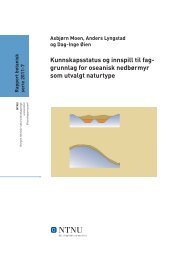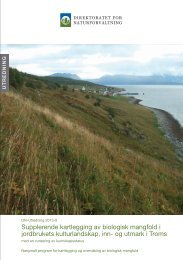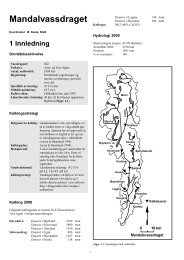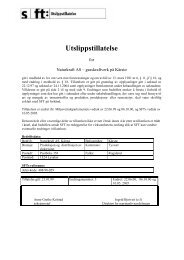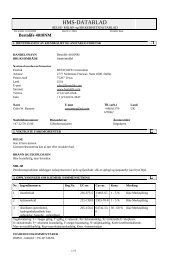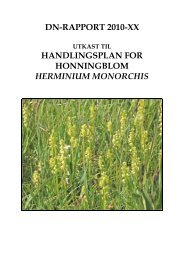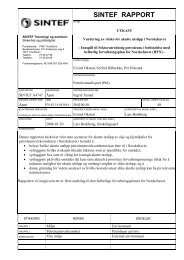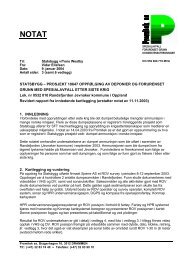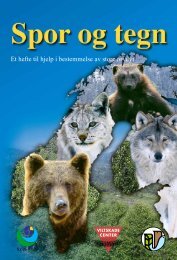Last ned - Direktoratet for naturforvaltning
Last ned - Direktoratet for naturforvaltning
Last ned - Direktoratet for naturforvaltning
You also want an ePaper? Increase the reach of your titles
YUMPU automatically turns print PDFs into web optimized ePapers that Google loves.
Klimaendringer, hav<strong>for</strong>suring og langtransportert <strong>for</strong>urensning<br />
Summary<br />
This report is an assessment of the impacts of climate change, ocean acidification and long-range<br />
pollution, and has been drawn up as part of the scientific basis <strong>for</strong> the preparation of an integrated<br />
management plan <strong>for</strong> the North Sea and Skagerrak. Similar reports have been drawn up <strong>for</strong> fishing<br />
and aquaculture, maritime transport, petroleum activities, renewable energy production (offshore<br />
wind turbines) and land-based and coastal activities.<br />
The North Sea and Skagerrak are under more pressure from human activities than other Norwegian<br />
sea areas. There are large population centres in many of the surrounding countries, and the North<br />
Sea–Skagerrak area itself shows the impacts of a high level of activity in many different sectors and<br />
industries.<br />
The report reviews current knowledge about pressures and impacts related to climate change, ocean<br />
acidification and long-range pollution, and the effects these pressures may have on a predefi<strong>ned</strong> set<br />
of ecosystem components. It also assesses the severity of these effects both at present and in the<br />
future.<br />
Two scenarios were developed <strong>for</strong> each of the three main themes of the report, one using positive<br />
trends <strong>for</strong> most variables, and the other using mainly negative trends. The scenarios <strong>for</strong> long-range<br />
pollution describe the expected situation in 2030, while the scenarios <strong>for</strong> climate change and ocean<br />
acidification describe trends <strong>for</strong> the period 2050–2100. The scenarios have been used as a basis <strong>for</strong><br />
predicting effects on ecosystem components in the management plan area. There has been little<br />
focus on assessing the current effects of climate change and ocean acidification, because it is so far<br />
very difficult to distinguish between natural variations and more long-term trends.<br />
Climate change<br />
To provide a better basis <strong>for</strong> describing mechanisms through which climate change may result in<br />
ecosystem change, 14 different pressures and impacts were identified. The report describes each of<br />
these factors and assesses their effects on the different ecosystem components. The factors that are<br />
considered to have the greatest potential <strong>for</strong> effects on ecosystem components are changes in ocean<br />
temperature; changes in stratification, ocean circulation and current patterns; and changes in species<br />
distribution. They are expected to have major effects in the management plan area in future, but the<br />
level of uncertainty is very high <strong>for</strong> all three factors. The effects of the remaining pressures and<br />
impacts are predicted to be moderate or minor. However, <strong>for</strong> alien species: increase in survival and<br />
establishment, the effects are considered to be unknown, because they depend entirely on which<br />
alien species become established in the management plan area. Climate change is likely to have a<br />
wide range of impacts, and all the ecosystem components that have been assessed will be affected<br />
to some extent.<br />
Given the range of pressures and impacts associated with climate change and the fact that, even<br />
considered alone, several of these are expected to have major effects, it is logical to conclude that<br />
major cumulative effects are to be expected in the management plan area in the future.<br />
Side 8 av 172



